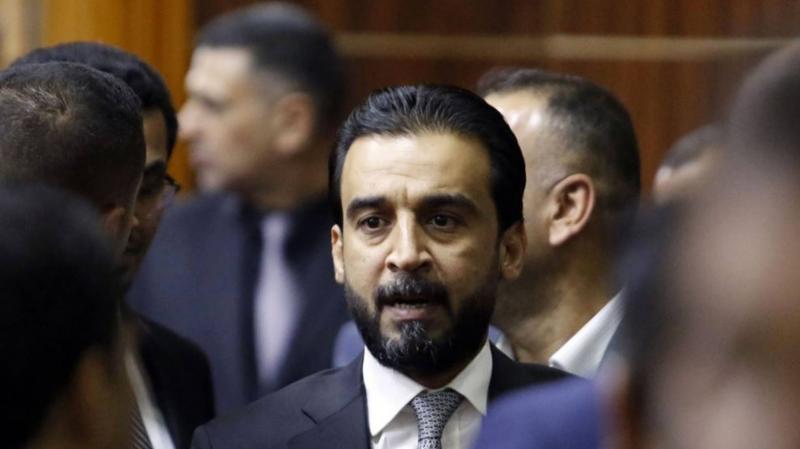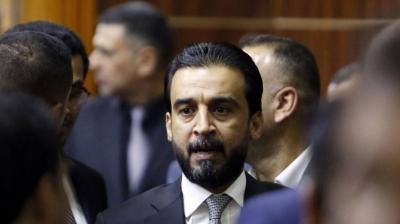The recent days of calm and stability that Iraq has enjoyed seem to have reached a crossroads and a critical, decisive moment. The court's decision to dismiss the Speaker of the Parliament, Muhammad Halabousi, is just a chapter in this ongoing saga. With Halabousi's exit from power, one of the three pillars of the government (legislative, executive, and judicial) supporting the consensual governance in Iraq has been broken. This complication potentially returns the political consensus to the starting point it began from last year when the "Coordination Framework" of Shia groups allied with Kurdish forces and Halabousi's "Progress" alliance to form Al-Sudani's government.
The features of this complexity and the sharp political division threatening Al-Sudani's government emerged moments after the Federal Court's ruling to dismiss Halabousi, linked to a forgery case involving a former MP. Three ministers from the "Progress" alliance in the government (Planning, Industry and Minerals, Culture), as well as most MPs from the bloc, announced the suspension of their work in the parliament.
In the meantime, Halabousi called on his supporters to adhere to the law while urging them to participate in local elections. From Al-Suqairiyah, Halabousi stated, "Our mission continues, our work is ongoing, and our procedures are long and will not stop. Those who targeted your project want to prevent your participation in the elections." He added that "the challenges we have faced are significant, but the choice of this timing has a clear message. Our voice remains strong in truth and law, and in the covenant we have with others, which is compliance with the law and the constitution. We do not accept anyone violating the law and the constitution."
He stated, "My request is that you do not weaken your will to cast your votes in the elections, and participate strongly and with high spirit, both men and women." He indicated that "some believe that people will take to the streets to attack official institutions, while others say they will demonstrate or resist, or that the days of 2013 will return. This is unacceptable, and we do not accept it (we did not do this, nor will we do it, nor have we ever done it)."
He continued, "We want our community to be safe and stable, and my request is for you to express your opinions without allowing chaos to disrupt your security and that of the country. We do not take to the main roads or beat the drums, nor do we obstruct institutions. If some previously pushed people to be before him, we say: no, we are in front of the people, and we are their bulwark."
He added, "We do not cut pathways nor break the law, and we do not allow the black crows to return, and we do not want the sound of gunfire; we want to hear the sound of construction. My request is for you to comply with the law and be an example for all." Halabousi concluded his speech: "I consider myself a father and a responsible leader. A father cares about the safety of his family and children, and ensures their livelihood and does not accept anything that harms them... in trial, he says (it’s upon him or upon them… and I say: upon me or upon you)."
In this context, the head of the Wisdom Movement, Ammar al-Hakim, viewed the upcoming local elections as crucial for maintaining stability in the country and turning it into lasting stability. Hakim stated in a statement, "During our meeting with a group of organizational leaders of the National Wisdom Movement in Baghdad, we praised the high enthusiasm and readiness for the upcoming elections, emphasizing that these elections are important for safeguarding stability in the country and transforming it into permanent stability."
He added, "We stressed the necessity of understanding the Wisdom project and its extensions and historical symbols. We affirmed that Wisdom is a deep-rooted project present at crucial junctures in Iraq’s history." He further stated, "We emphasized the commitment to moderation and centrism, and clarified that Wisdom is a trend characterized by solid and extensive internal and external relationships." He highlighted that "we also emphasized the need for field presence and communication with the public in every possible way, and the importance of local elections in building local governments that reflect the will of the public."
It appears that Halabousi's dismissal will not affect the electoral process, as evidenced by Halabousi himself and the leaders of blocs and parties calling for full adherence to the rules of the democratic game and mobilizing everything necessary to win in the upcoming elections.




